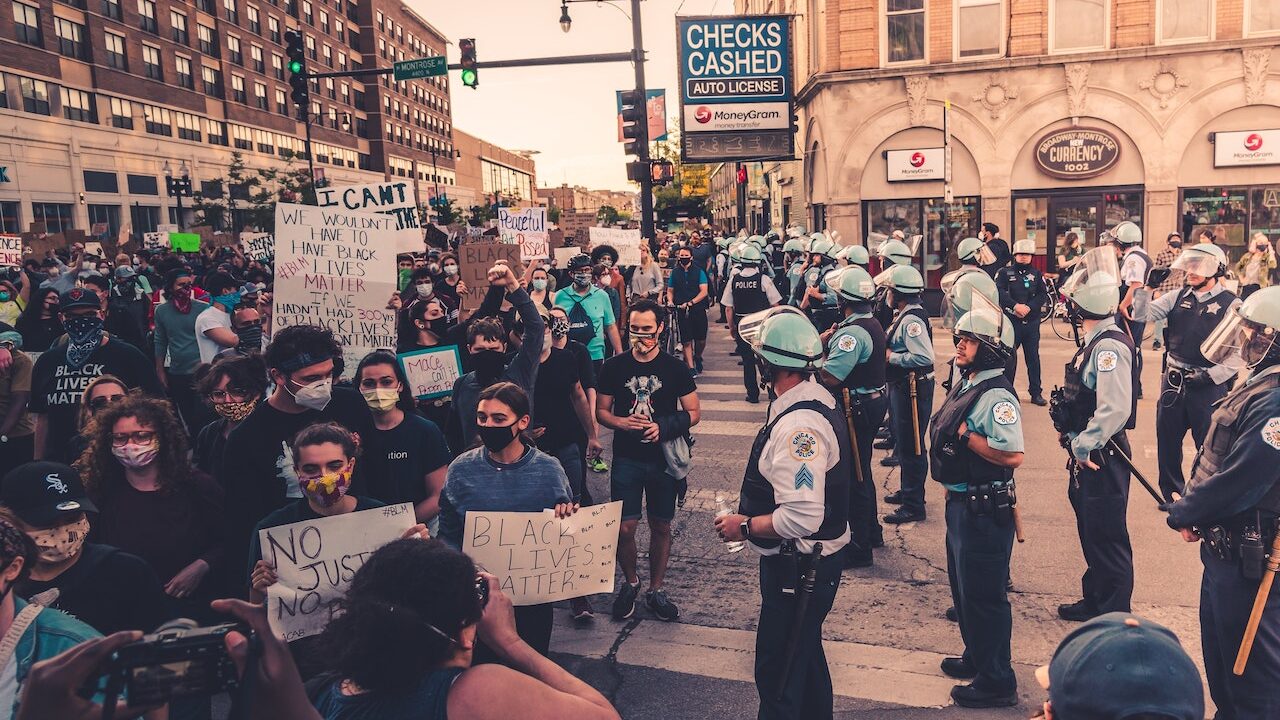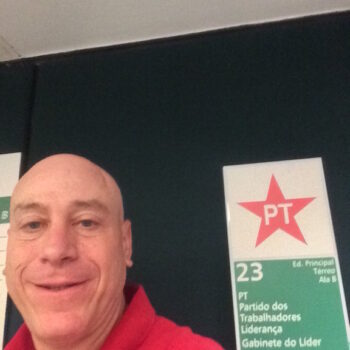As a longtime community organizer, I am awestruck by the wave of rebellion that took place across the country this summer. This recent iteration of the Movement for Black Lives is the largest social movement in U.S. history. The movement is already making substantial gains, as one big city mayor after another announces steps to defund the police. In Minneapolis, where the uprisings began, abolition seems possible. Still, we will not dismantle 400 years of white supremacy and structural racism in a few months. Both state-sponsored shootings as well as extrajudicial murders of Black folks by white supremacists continue.
There is one clear manifestacion of white supremacy on the national ballot in November. The Trump campaign is making this election about “law and order,” supporting police over people and white supremacy over racial justice. Because the federal government controls so many levers of power and because this administration is so willing to sow disinformation, we are also in a moment where another presidential election could be stolen.
This moment demands bold action — and not just from the Black folks who have been on the front lines of the uprisings all summer. We are entering a stretch in which what those of us with race and class privilege do is absolutely critical to how much of the status quo we can dismantle. We must stay active in the streets, and we must do the hard work of using our social, political, and economic capital.
One of the prime ways in which we can use our social capital is by breaking the taboos about when and where we confront those in power. As organizers, we can help those with privilege — from donors to political allies — to map their power and use their access to confront the system. Do they know someone who lives next to the Mayor? Do their kids play little league with the children of those who are perpetuating the system? Have they ever gone out to eat, seen the powerful eating nearby, and let them dine in peace? Those are all opportunities to use racial and class privilege in service of disruption.
The second kind of action we can take is non-compliance.
Non-compliance is based on the notion that the whole system is rotten and needs to be opposed. In other words, non-compliance is bigger than taking action around a set of demands; it is a refusal to engage in business as usual. The many people on the frontlines of the recent protests who have refused to disperse and, instead, fought back against the police are engaging in non-compliance.
At the point where Trump begins to steal the election, our instinct will be to take to the streets with signs to voice our displeasure. But what we actually need to do is play outside the usual rules. We will probably need to start with demonstrations at the homes of all electeds and CEOs who support Trump or who benefit from a stolen election. This will force them to choose a side. We may need to escalate from there by shutting down neighborhoods where clusters of plutocrats or electeds reside or shutting down transit and business more generally.
As these mass disruptions unfold, there will be lots of attempts to disperse the crowds, both through tear gas and mass arrests. Those who are arrested and who can take the health risk could engage in jail solidarity, meaning that arrestees refuse to give their names or pay bail. The result of this form of non-compliance at scale is that the government loses legitimacy, as tens or even hundreds of thousands of people remain detained. Jails would be overflowing and stadiums might end up as mass detention centers — a visible way to show that the coup government has no legitimacy. As organizers, we can foster that non-compliance by encouraging those with privilege to practice jail solidarity while we bail out those who are most at risk.
If we have a legitimate government in January, we can still use the principles of non-compliance to delegitimize the police. All of us interact with police regularly. Maybe we get pulled over for rolling a stop sign or speeding. Maybe a cop comes to our workplace to take a statement about petty theft, the kind of action that resulted in George Floyd’s murder. Are some of us willing to take a risk and refuse to cooperate? We can choose not to give our information because we do not recognize the legitimacy of the institution. Will we go to jail? Absolutely. We might even wind up staying in jail if we refuse to collaborate with the police. But hundreds of us refusing to comply with an unjust system tells a compelling story. This courageous vanguard of organizers would be creating the template for tens of thousands more to resist. These kinds of actions build from a tradition of priests who burned draft cards during the Vietnam War and literally hammered weapons into plowshares; they were some of the most compelling moral voices of demilitarization.
Bold actions create cascades of noncompliance. We could not have predicted, for example, that most major sports players would strike in response to the police shooting of Jacob Clark.
For those of us with power in the form of racial, class, or gender privilege, using our capital is not easy. But once we break through our trepidation, we can find some liberation. Questioning authority in one instance frees us up to question authority in other instances, creating a more freewheeling society that discards useless norms and expectations. Those of us who rebel against these systems of misguided authority will also be able to stand up to our bosses, demagogues, and the systems of finance that keep us divided, scared, and always on the edge. As organizers, we can create trainings and structures whereby those of us with privilege have the framework and tools to take bold, independent, and principled action.
Dismantling the old and building the new requires courage and determination. But if we all put it on the line, we can break through to the world in which we want to live.

